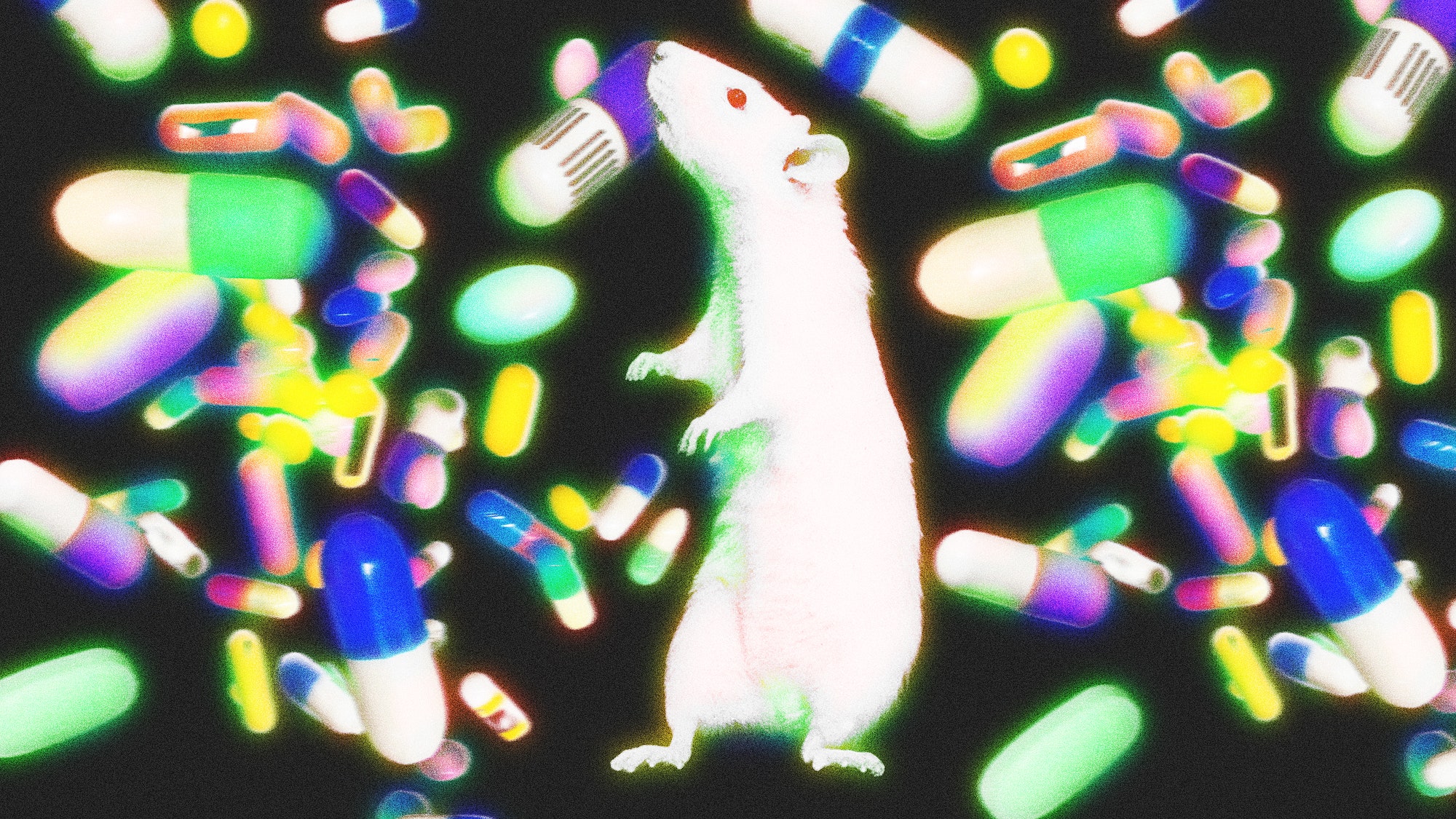Energy drinks might lengthen your lifespan, if the headlines are to be trusted.
Taurine, an amino acid and an ingredient found in Red Bull, Monster, and other energy drinks (and naturally in foods with protein), was recently found to have potential longevity-boosting effects in mice, worms, and monkeys.
“Taurine deficiency as a driver of aging,” published in Science, found that taurine levels appear to drop as we age, across mice, worms, monkeys, and yes, humans. Why, exactly? It’s not clear.
The study showed that mice who were fed taurine experienced a double-digit percentage increase in lifespan compared to a control group, plus “an improved functioning of bone, muscle, pancreas, brain, fat, gut, and immune system,” which is great. For mice.
It might be tempting to make the logical leap to say taurine must be good for humans, but it would be just that: a leap. As with any mouse-focused scientific discovery, we shouldn’t fall for that trap. We share 78.5% of our genes with mice, making them excellent vehicles for experimentation, and why they’re often used in drug research. However, more often than not, mouse study findings fail to replicate themselves in human trials.
If you’re a mouse, it looks like a no-brainer to add taurine to your stack. If you’re a human, you’ll demand more data before taking this study’s findings and changing your daily habits. Take the authors’ word for it: They noted that they don’t actually know how taurine affects cells. In a press conference, they explicitly advised against ingesting taurine supplements to combat aging.






